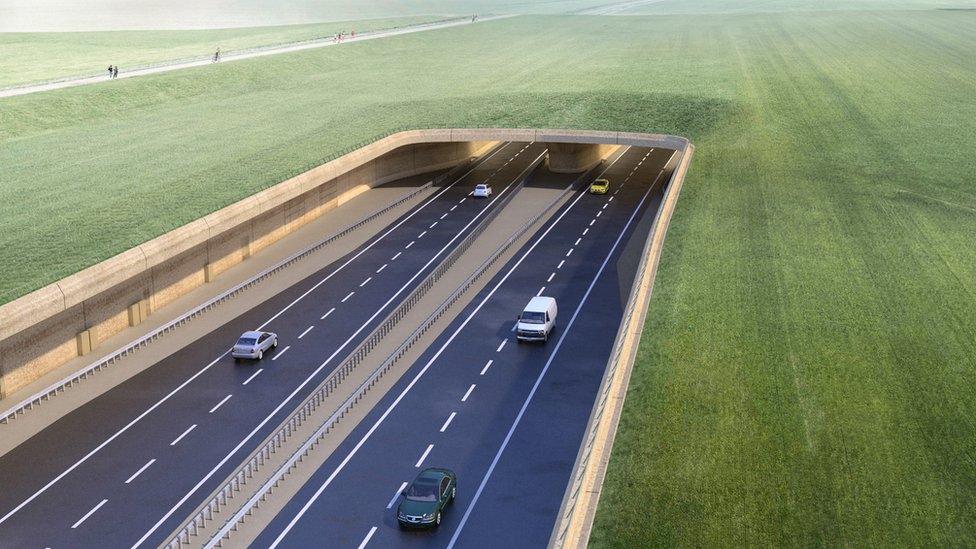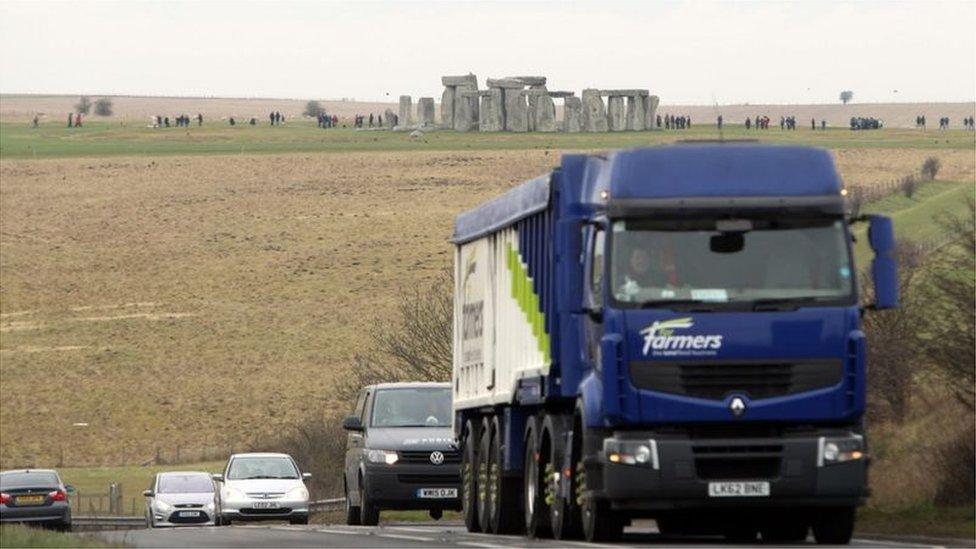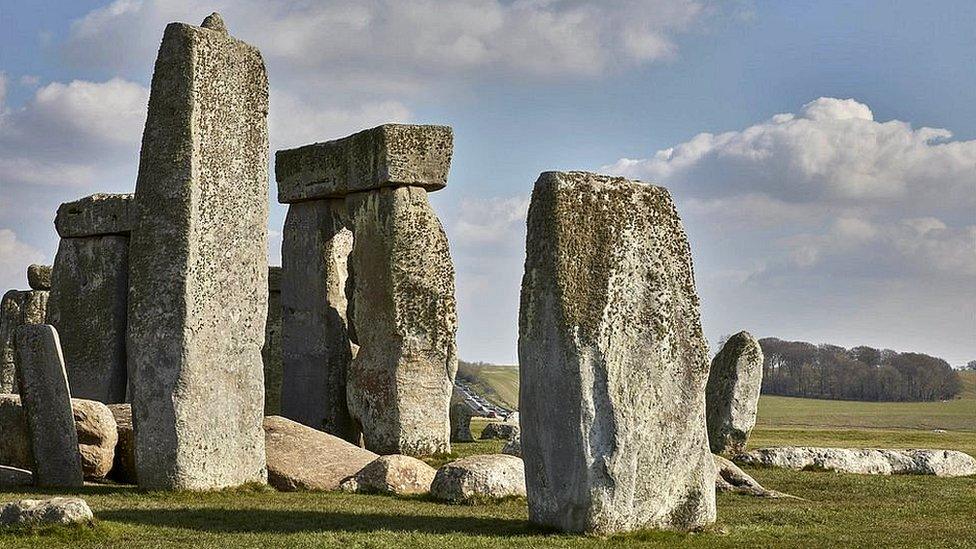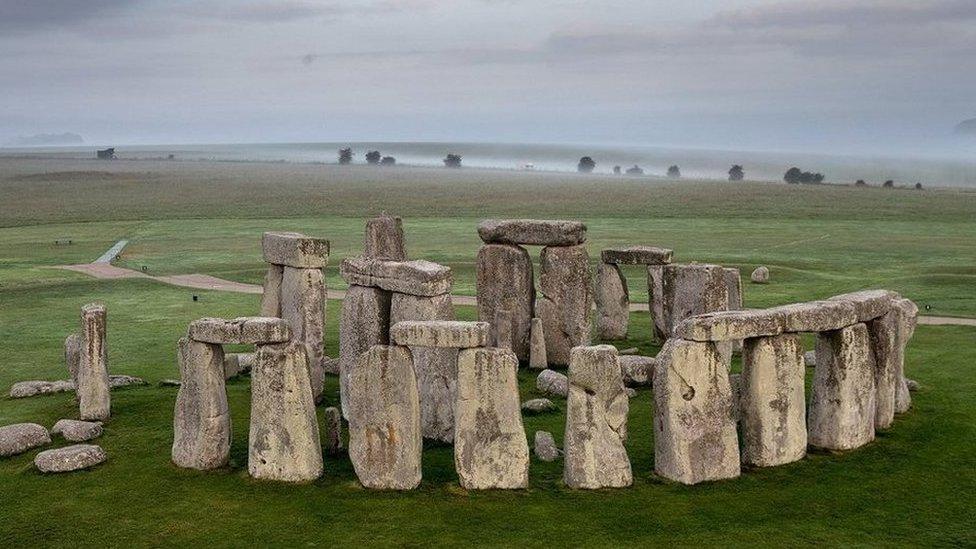Stonehenge tunnel: Campaigners lose High Court challenge
- Published
- comments

Highways England said it wanted to build the tunnel to reduce traffic and cut journey times on the A303
Campaigners have lost a High Court challenge against renewed plans to build a road tunnel near Stonehenge.
Save Stonehenge World Heritage Site (SSWHS) challenged plans for a tunnel on part of the A303 near the site.
The High Court quashed the project in 2021 amid environmental concerns, but the Department for Transport (DfT) approved it again on 14 July last year.
National Highways says the tunnel will remove the sight and sound of traffic passing the site and cut journey times.
In December, campaigners brought a second bid to the High Court in London to challenge the decision to reapprove the plans, which will overhaul eight miles of the A303, including building the 2km tunnel.
However, in a ruling on Monday, Mr Justice Holgate largely dismissed their claim, finding most parts of their case were "unarguable".
SSWHS previously said the approved scheme would "destroy" around seven hectares of the world heritage site, and mark "the first step" towards being de-listed by Unesco.
In his 50-page ruling, Mr Justice Holgate said ministers had "rightly focused on the relevant policies" and that the campaigners' evidence "provides no basis for undermining that conclusion".
One part of the legal bid, over the DfT's approach to an environmental impact assessment, will be determined at a later date.
During the hearing last year, David Wolfe KC, for SSWHS, said the Government gave "unlawful consideration of alternatives" to the project, and that campaigners believed National Highways had provided "fundamentally flawed" information over these that "failed to acknowledge the heritage harm".
The information was also based on a "flawed analysis of likely traffic figures for the A303," he added.
However, James Strachan KC, for the DfT, said the government concluded the project was "consistent with the UK's obligations" under the world heritage convention and that it would work with advisory bodies to "minimise harm".
The government has argued that the need for the scheme and its benefits "outweighed the harms", including the "less than substantial harm to heritage assets".

The Planning Inspectorate said the decision was made following "careful consideration"
National Highways has said its plan for the tunnel will remove the sight and sound of traffic passing the site and cut journey times.
Duncan Wilson, Chief Executive of Historic England, said the charity was pleased the court had upheld the Secretary of State's decision.
"We firmly believe that putting much of the busy, noisy and intrusive A303 road into a tunnel past Stonehenge is right for the World Heritage Site," he said.
"This is a once-in-a-generation opportunity to restore this internationally-important landscape, which has been of great importance to people for over 5,000 years."
Then-transport secretary Grant Shapps first gave the green light to the project in November 2020, despite advice from Planning Inspectorate officials that it would cause "permanent, irreversible harm" to the area.
The SSWHS alliance successfully challenged his decision in the High Court.
- Published19 September 2023

- Published26 August 2023
